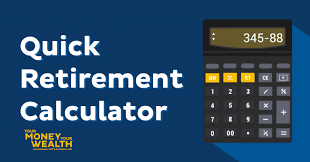Navigate the complexities of financing your business with ease using our comprehensive tool including the Business Loan Amortization Calculator (Business Loan Calculator EMI) . This user-friendly calculator will help you assess your repayment options, manage your cash flow, and make informed decisions to ensure your business’s long-term financial success.Loan Calculator Business Loan will help you to analyze each and every aspect of your loan.
Business Loan Calculator
Amortization Schedule
| Year | Balance | Payment | Principal | Interest | New Balance |
|---|
Starting a business can be an exciting and rewarding experience, but it can also be financially challenging. Most entrepreneurs require some form of financing to get their business off the ground and grow it. One popular financing option is a business loan. In this article, we will explore the importance of a business loan, types of loans available, business loan fees, factors to consider before choosing a loan, and frequently asked questions about small business loans.
Importance of a Business Loan
A business loan can be a lifeline for a new or existing business. Here are some reasons why:
- Helps Your Business Grow: With a business loan, you can access the funds you need to expand your business, launch a new product or service, or open a new location. This can help increase your revenue and profits, and ultimately help your business grow.
- Provides Working Capital: A business loan can provide you with the working capital you need to cover your day-to-day expenses, such as rent, payroll, and inventory costs, without sacrificing your business’s cash flow.
- Builds Credit: Taking out a business loan and repaying it on time can help establish your business’s credit score, which can improve your chances of getting approved for future loans and credit lines.
- Tax Benefits: In many cases, the interest paid on a business loan can be tax-deductible, which can help reduce your business’s taxable income and lower your tax liability.
SBA Loans
The Small Business Administration (SBA) is a government agency that provides support to small businesses. One of the ways they do this is by offering loan programs. Here are the most common types of SBA loans:
- 7(a) Loans: These loans are the most popular SBA loans and can be used for a variety of business purposes, including working capital, equipment purchases, and real estate.
- CDC/504 Loans: These loans are designed for businesses that need to purchase or renovate commercial real estate or buy equipment. The loan is structured with a first mortgage from a private-sector lender and a second mortgage from the SBA.
- Microloans: Microloans are small loans (up to $50,000) that are designed for small businesses and startups. The loans are usually used for working capital, inventory, or equipment.
Types of Business Loans
In addition to SBA loans, there are several other types of loans that businesses can consider. Here are some of the most common:
- Term Loans: Term loans are a type of loan that is repaid over a set period of time (usually one to five years). They can be secured or unsecured and are often used for large purchases, such as equipment or real estate.
- Line of Credit: A line of credit is a revolving loan that allows a business to borrow up to a certain amount, repay it, and then borrow again. This type of loan is often used for short-term financing needs, such as payroll or inventory.
- Equipment Financing: Equipment financing is a type of loan that is specifically designed for the purchase of equipment. The equipment being financed usually serves as collateral for the loan.
While SBA loans and small business loans are common types of business financing, there are many other types of loans available to businesses. Here are some of the most common:
Equipment Loans
If your business requires specialized equipment to operate, an equipment loan may be a good option for you. This type of loan is designed specifically to finance the purchase or lease of equipment, such as heavy machinery, vehicles, or technology. Equipment loans typically have lower interest rates than other types of loans because the equipment serves as collateral.
Line of Credit
A line of credit is a type of loan that provides you with access to a revolving line of credit that you can use whenever you need it. This is a great option for businesses that experience seasonal fluctuations in cash flow or for those that need to cover unexpected expenses. With a line of credit, you only pay interest on the amount you borrow, which can help keep your costs down.
Invoice Financing
If your business provides products or services to other businesses, you may be eligible for invoice financing. With this type of loan, you can receive an advance on your outstanding invoices from a lender. This can be a great option if your business has a lot of outstanding invoices that are tying up your cash flow. Invoice financing can help you get paid faster and improve your cash flow.
Merchant Cash Advances
Merchant cash advances are a type of loan that is designed specifically for businesses that accept credit card payments. With a merchant cash advance, you can receive a lump sum payment in exchange for a percentage of your future credit card sales. This can be a good option if you need cash quickly or if you have poor credit. However, merchant cash advances typically have very high interest rates and fees, so it’s important to read the terms carefully before agreeing to this type of loan.
Personal Loans
While personal loans are not specifically designed for businesses, they can be a good option if you are having trouble getting approved for a business loan. With a personal loan, you can use the funds for any purpose, including funding your business. However, keep in mind that personal loans typically have higher interest rates than business loans and may not offer the same tax benefits.
Crowdfunding
Crowdfunding is a relatively new type of financing that has become popular in recent years. With crowdfunding, you can raise funds for your business by soliciting small contributions from a large group of people, typically via the internet. Crowdfunding can be a great option if you have a unique business idea or if you want to test the market before launching your product or service. However, it can be difficult to stand out among the thousands of crowdfunding campaigns that are launched each year.
In conclusion, there are many different types of loans available to businesses. It’s important to understand the pros and cons of each type of loan and to choose the one that best fits your business’s needs. Consider factors such as interest rates, fees, repayment terms, and eligibility requirements when choosing a loan. By doing your research and choosing the right loan, you can access the funds you need to grow your business and achieve your goals
Business Loan Fees
various fees that may be associated with a business loan and how they can affect your overall loan costs.
Origination Fees- Origination fees are one of the most common fees associated with business loans. These fees are typically charged as a percentage of the total loan amount and are intended to cover the lender’s costs associated with processing and underwriting the loan. Origination fees can range from 1% to 5% of the total loan amount, depending on the lender and the type of loan.
It’s important to note that origination fees are typically added to the loan principal, which means that they will be included in your monthly payments and will accrue interest over time. This can significantly increase the overall cost of your loan, so it’s important to factor in origination fees when comparing loan offers from different lenders.
Application Fees -Some lenders may also charge an application fee when you apply for a business loan. This fee is typically non-refundable and is intended to cover the costs associated with processing your loan application, such as credit checks and background checks. Application fees can range from $100 to $500, depending on the lender and the size of the loan.
It’s important to note that not all lenders charge application fees, and some lenders may waive the fee if you meet certain criteria, such as having a strong credit score or an established business history.
Closing Costs- Closing costs are fees that are incurred when you close on a business loan. These fees can include things like attorney fees, title search fees, and appraisal fees. Closing costs can vary widely depending on the size of the loan and the lender, but they can add up quickly and significantly increase the overall cost of your loan.
Some lenders may allow you to roll closing costs into your loan, which means that they will be added to the loan principal and included in your monthly payments. However, this can significantly increase the overall cost of your loan, so it’s important to factor in closing costs when comparing loan offers from different lenders.
Prepayment Penalties- Some lenders may charge a prepayment penalty if you pay off your business loan early. This fee is intended to compensate the lender for the interest they would have earned if you had made all of your scheduled payments. Prepayment penalties can vary widely depending on the lender and the size of the loan, but they can add up quickly and significantly increase the overall cost of your loan.
It’s important to note that not all lenders charge prepayment penalties, and some lenders may waive the fee if you meet certain criteria, such as having a strong credit score or an established business history. If you plan to pay off your loan early, be sure to check with your lender to see if they charge a prepayment penalty.
Late Payment Fees- Late payment fees are charged when you fail to make your loan payments on time. These fees can vary widely depending on the lender and the size of the loan, but they can add up quickly and significantly increase the overall cost of your loan. In addition to late payment fees, failing to make your loan payments on time can also negatively impact your credit score, making it more difficult to secure financing in the future.
To avoid late payment fees, it’s important to make your loan payments on time each month. If you’re having trouble making your payments, be sure to contact your lender to discuss your options, such as refinancing or restructuring your loan.
In conclusion, business loan fees can significantly increase the overall cost.
Factors in Business Loans
When considering applying for a business loan, it is important to understand the various factors that lenders take into consideration when reviewing loan applications. By understanding these factors, you can better prepare yourself to meet the requirements for approval and secure the funding your business needs. Here are some of the key factors that lenders consider when evaluating business loan applications:
Credit Score: Your personal and business credit scores are often the first things that lenders will consider when evaluating your loan application. A high credit score can demonstrate that you have a history of responsible borrowing and are less of a risk to lenders. If your credit score is low, however, it may be more difficult to secure a loan or you may be charged higher interest rates.
Revenue: Lenders will want to see that your business generates enough revenue to support the loan repayment. The higher your revenue, the more likely you are to be approved for a loan, as it shows that you have a proven track record of generating income.
Time in Business: Lenders prefer to lend to businesses that have been in operation for a while, typically at least two years. This demonstrates that your business has already weathered the challenges of starting up and has a track record of success.
Collateral: Collateral refers to assets that can be used to secure the loan in case of default. This can include property, equipment, or inventory. If you have collateral to offer, it can help you secure a loan with more favorable terms.
Debt-to-Income Ratio: Lenders also look at your debt-to-income ratio, which is the amount of debt you have compared to your income. A high debt-to-income ratio can be a red flag to lenders, as it may indicate that you are already overextended and may struggle to make loan payments.
Industry: The industry your business operates in can also be a factor in loan approval. Some industries, such as technology or healthcare, may be seen as more favorable by lenders due to their growth potential and stability.
Loan Purpose: Finally, lenders will want to know the purpose of the loan and how it will be used to benefit your business. A clear and compelling plan for how the loan will be used can increase your chances of approval.
pros and cons of business loan
However, like any financial product, there are both advantages and disadvantages to taking out a business loan. In this section, we will explore the pros and cons of business loans.
Pros of Business Loans:
Access to Capital: One of the main benefits of a business loan is that it provides businesses with access to capital they may not have otherwise. This capital can be used to purchase equipment, inventory, or other necessary items to run and grow the business.
Improve Cash Flow: Business loans can also help improve cash flow by providing funds to cover expenses when revenue is slow. This can be particularly beneficial for seasonal businesses or those that experience fluctuations in revenue.
Flexibility: There are a variety of business loan options available, including term loans, lines of credit, and SBA loans, each with their own unique terms and repayment schedules. This allows businesses to choose the loan that best fits their needs and financial situation.
Build Credit: Repaying a business loan on time can help establish and improve a business’s credit score, making it easier to access financing in the future.
Cons of Business Loans:
Debt Obligation: Taking out a business loan means the business is taking on debt that must be repaid with interest. This can be a significant financial burden, particularly if the business experiences financial difficulties or cannot generate enough revenue to cover the loan payments.
Fees and Interest: Business loans often come with fees and interest rates, which can add up quickly and increase the overall cost of borrowing.
Collateral: Many lenders require collateral to secure the loan, which can be risky for businesses. If the business is unable to repay the loan, they may lose the collateral, which can have a significant impact on the business’s operations.
Qualification Requirements: Qualifying for a business loan can be challenging, particularly for new or small businesses. Lenders often require a strong credit score, significant collateral, and a proven track record of revenue and profitability.
Business Loan Amortization Calculator
For entrepreneurs and business owners, securing a business loan is a common practice to fuel growth, invest in assets, or manage working capital. However, understanding the financial implications of a business loan is equally essential. This is where a Business Loan Amortization Calculator comes into play. In this article, we will delve into the significance of this tool and explore the dynamics of business loans.
Demystifying Business Loan Amortization:
Amortization refers to the process of repaying a loan through scheduled, periodic payments. In the context of a business loan, amortization involves the gradual reduction of the loan balance, primarily through equal installments that include both principal and interest components. This systematic repayment process ensures that the loan is paid off in full by the end of its term.
The Role of the Business Loan Amortization Calculator:
A Business Loan Amortization Calculator is a financial tool designed to simplify the complexities of loan repayment. Here’s how it works:
Enter Loan Details: Start by inputting the specifics of your business loan, such as the loan amount, interest rate, and loan term.
Generate Amortization Schedule: The calculator creates an amortization schedule, which is a table that outlines the periodic payments, breaking them down into principal and interest components.
Visualize Repayment: The schedule provides a clear picture of how your loan will be repaid over time, helping you understand the distribution of payments and the outstanding balance at any point.
Calculate EMI (Equated Monthly Installment): The calculator also calculates the EMI or monthly installment, which is the fixed payment you need to make every month. It consists of both principal and interest portions.
Why Use a Business Loan Amortization Calculator:
Utilizing a Business Loan Amortization Calculator offers several advantages:
Financial Planning: It helps you plan and budget for loan repayments, ensuring you can meet your financial obligations without straining your cash flow.
Transparency: By visualizing the entire loan repayment process, the calculator promotes transparency and aids in understanding how each payment contributes to reducing the loan balance.
Interest Analysis: The calculator enables you to see the interest paid over the life of the loan, allowing you to evaluate the total cost of borrowing.
Scenario Analysis: You can use the calculator to experiment with different loan terms, interest rates, or additional payments to find the most favorable loan structure.
The Importance of the Business Loan Calculator EMI:
EMI stands for Equated Monthly Installment, and it is a key component of loan repayment. The Business Loan Calculator EMI, which is generated by the amortization calculator, represents the monthly amount you must pay to clear your business loan.
Using the Loan Calculator Business Loan:
To use the Business Loan Amortization Calculator, follow these steps:
- Input the loan amount you are considering.
- Specify the annual interest rate.
- Determine the loan term, which is the duration over which you will repay the loan.
- Click “Calculate” or “Generate Amortization Schedule.”
The calculator will provide you with an amortization schedule, EMI, and a breakdown of principal and interest payments for each installment.
In Conclusion:
A Business Loan Amortization Calculator is an invaluable tool for entrepreneurs and business owners, helping them understand the dynamics of loan repayment and enabling better financial planning. By visualizing the repayment process and calculating the EMI, you can make informed decisions about your business loans, manage your finances efficiently, and allocate resources more effectively for your business’s growth and success.

FAQs On Business Loans
What is a business loan?
A business loan is a type of loan that is specifically designed for businesses to use for a variety of purposes, such as expanding the business, purchasing new equipment, or covering operating expenses.
What are the requirements for obtaining a business loan?
The requirements for obtaining a business loan can vary depending on the lender and the type of loan you are applying for. Generally, lenders will consider your credit score, business plan, financial history, and collateral (if required).
How long does it take to get approved for a business loan?
The approval process for a business loan can vary depending on the lender and the type of loan you are applying for. Some lenders may be able to approve your loan application within a few days, while others may take several weeks.
What is the interest rate for a business loan?
The interest rate for a business loan can vary depending on the lender, the type of loan, and your creditworthiness. Generally, interest rates for business loans range from 4% to 30%.
Can I get a business loan if I have bad credit?
It may be more difficult to obtain a business loan if you have bad credit, but it is still possible. Some lenders offer loans specifically for businesses with bad credit, but these loans may have higher interest rates and stricter repayment terms.
How much can I borrow with a business loan?
The amount you can borrow with a business loan can vary depending on the lender and the type of loan you are applying for. Generally, lenders offer business loans ranging from a few thousand dollars to several million dollars.
What is the repayment term for a business loan?
The repayment term for a business loan can vary depending on the lender and the type of loan you are applying for. Generally, repayment terms for business loans range from one to 10 years.
What happens if I can’t repay my business loan?
If you are unable to repay your business loan, your lender may take legal action against you and may seize your collateral (if required). This can negatively impact your credit score and make it more difficult to obtain future loans.
Can I use a business loan to pay off personal debt?
While it is technically possible to use a business loan to pay off personal debt, it is not recommended. Doing so can blur the lines between personal and business finances, which can make it difficult to accurately track your business’s financial performance.
What are the alternatives to a business loan?
There are several alternatives to a business loan, including business credit cards, lines of credit, crowdfunding, and personal loans. Each option has its own advantages and disadvantages, so it is important to carefully consider your options before making a decision.





